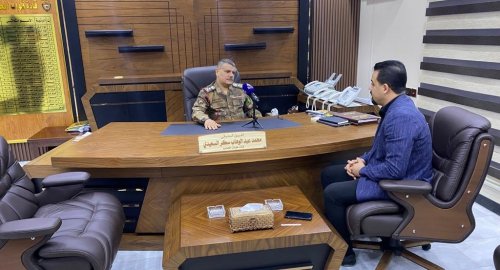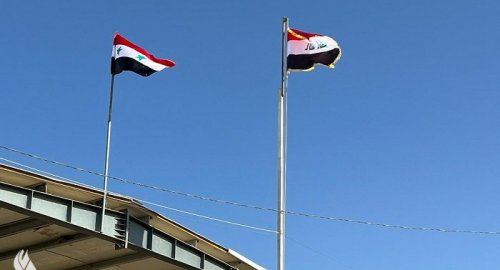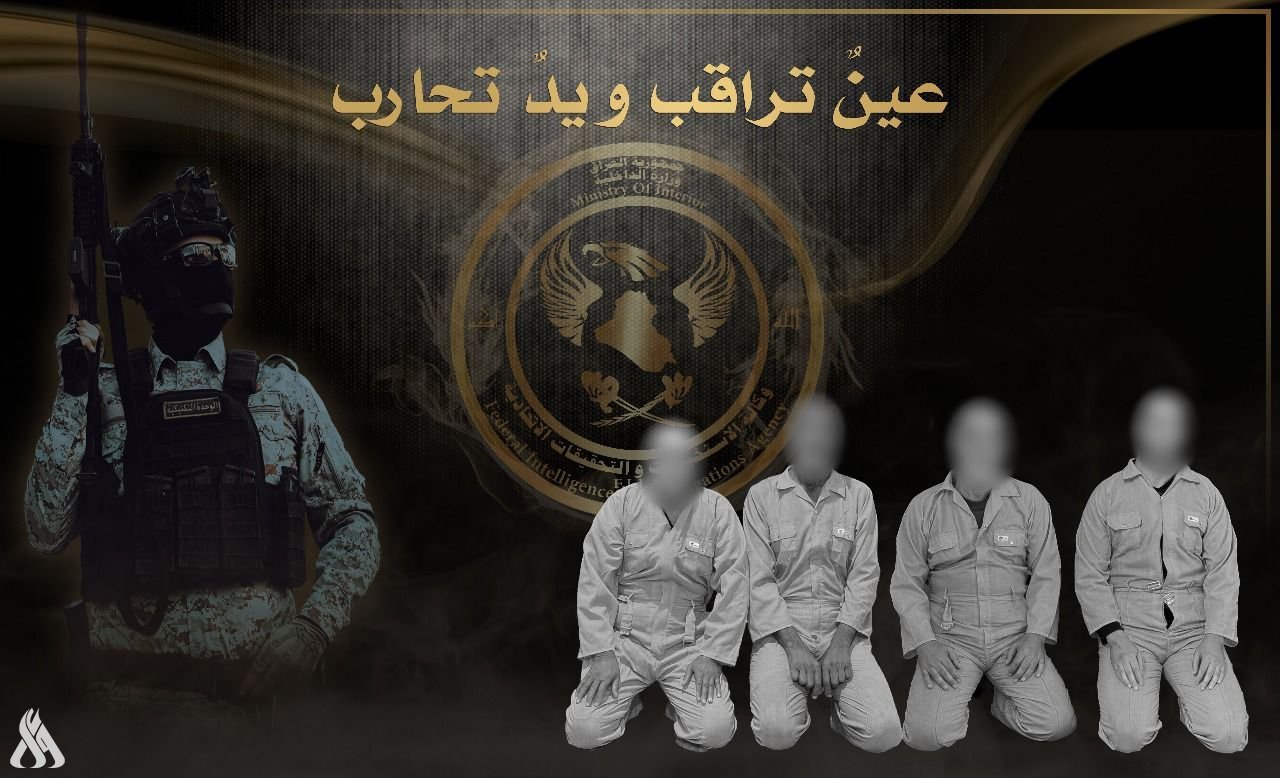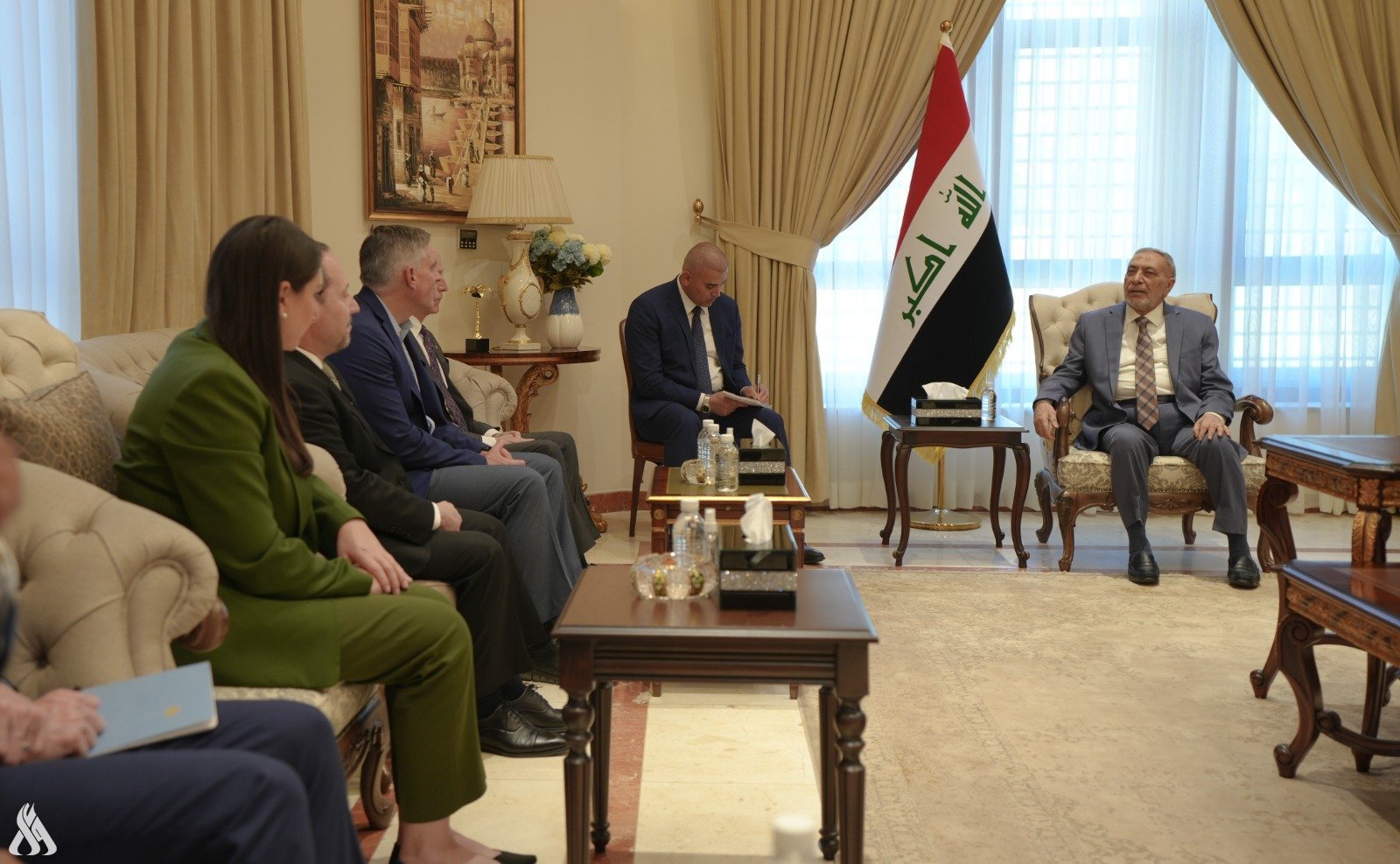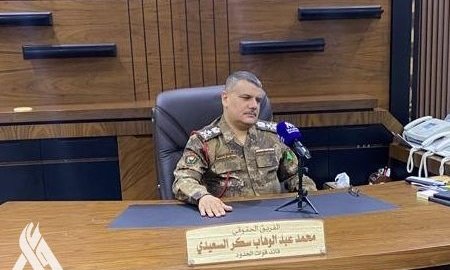
Iraqi Border Forces responsible for securing borders with six neighboring countries: Maj Gen Sukkar

- 18-01-2024, 09:00
INA- Baghdad
At a press conference that the Iraqi News Agency (INA) reporter attended, Major General Muhammad Abdul Wahab Sukkar, the commander of the border forces, stated that "the command of the border forces is one of the important foundations in the Ministry of Interior, as it may be linked to the Federal Security Agency, and its nucleus appeared in 1934 and its formation was completed with the current description in 1970." He further stated that "the border command consists of a headquarters of forces currently located in Baghdad and has important directorates and joints, in addition to six areas concerned with controlling the Iraqi borders with countries neighboring."
He went on, "It is also related to the customs directorates that oversee the monitoring and inspection of goods in Iraq," adding that "the command of the border forces is responsible for controlling the border between Iraq and six neighboring countries."
He emphasized that "the border forces operate centrally federal concerned with the borders of Iraq in all provinces," pointing out that "the total lengths of the Iraqi border with the six neighboring countries are 3719 kilometers and concerned with the command forces."
The border command's responsibility, he continued, is to maintain control over the actual border security between the two nations, the degree of fortifications and electronic surveillance that is implemented between them, the convergence of local populations in Iraq and other nations, and the disparity in living standards between them economically.
"The border forces command has coordination, cooperation, and protocols with the border commanders of neighboring countries," he made note of.
"The majority of the Command's accomplishments are in the direction of strengthening the combat capacity of the border forces through the human resources allocated to the command," the statement continued. "Over the past year, the command has made great achievements that contributed to controlling and stabilizing the internal situation and contributed to the decrease the supply of narcotics and smuggled substances into the country, along with significant initiatives that involve the use of drones and thermal cameras for electronic surveillance—firsts in the history of the Iraqi state's borders."
As part of our cooperation with the Iranian side, the Border Command was also able to drive outlaw elements from Sulaymaniyah province, and in Erbil, our units now control border areas where there haven't been any sectors of the Iraqi state since 1991."
"Great achievements have been made in the seizure of narcotic substances and the arrest of infiltrators and smugglers," he said, adding that the majority of these individuals were not only smugglers but also violators of customs laws and nationalities from Pakistan, Iran, and Syria.
"The Command of the border forces paid great attention to the Iraqi-Syrian border, and large fortifications were conducted in this area that are almost the best in the fortifications of neighboring countries," he said, pointing out that "the border forces were also able to stop many attempts to infiltrate the border, most of them from Syria."
In order to minimize costs and finish the closure of the Syrian border, he emphasized that "the command has a concrete factory that works to produce concrete blocks and install them on the borders." He also mentioned excellent communication with the commands of operations inside Iraq, as well as great cooperation with all ministries and governors.
Duhok of Iraq and Qadsia of Kuwait match kicks off
- Sport
- 25/04/15
Four Daesh terrorists detained in Salahuddin
- Security
- 25/04/14
Two ISIS hideouts destroyed, killing those inside in Salah al-Din
- Security
- 25/04/13
